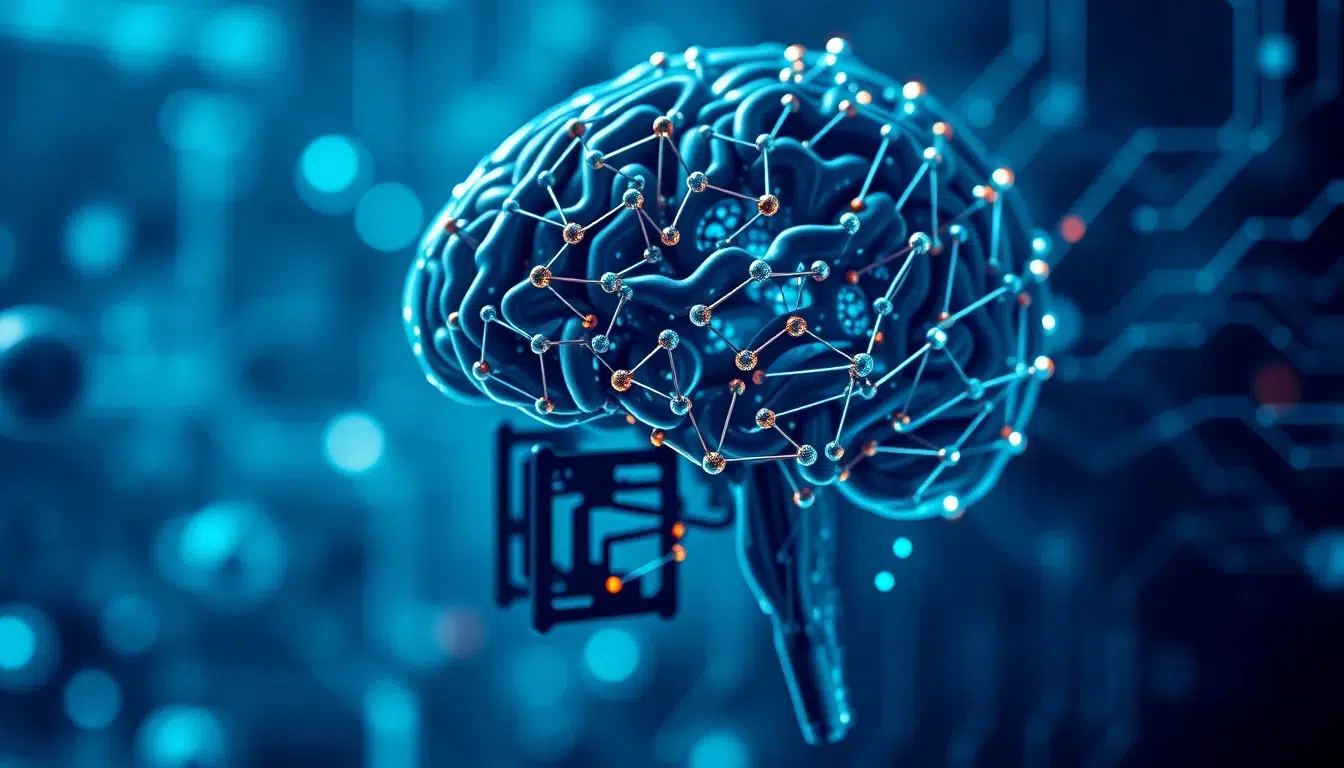Deep Learning Course

| Date | Format | Duration | Fees (USD) | Register |
|---|---|---|---|---|
| 27 Oct - 31 Oct, 2025 | Live Online | 5 Days | $3350 | Register → |
| 17 Nov - 28 Nov, 2025 | Live Online | 10 Days | $7050 | Register → |
| Date | Venue | Duration | Fees (USD) | Register |
|---|---|---|---|---|
| 06 Oct - 10 Oct, 2025 | Chicago | 5 Days | $6570 | Register → |
| 17 Nov - 19 Nov, 2025 | Seoul | 3 Days | $5215 | Register → |
Did you know that deep learning architectures have made significant strides in computer vision and natural language processing, revolutionising how we perceive and understand visual and textual data?
Course Overview
The Deep Learning Course by Alpha Learning Centre is meticulously designed to equip professionals with essential skills in advanced deep learning techniques and architectures. This course focuses on how professionals can develop, optimise, and deploy sophisticated neural networks to solve complex problems across various domains including computer vision, natural language processing, and audio analysis.
Why Select This Training Course?
Selecting this Deep Learning Course offers numerous advantages for professionals involved in artificial intelligence and data science. Participants will gain advanced knowledge of neural network architectures, optimisation techniques, and deployment strategies. The course provides hands-on experience with industry-standard frameworks and real-world applications, enabling attendees to optimise their deep learning implementations effectively.
For organisations, investing in this training enhances overall AI capabilities and ensures better business outcomes. Research shows that organisations implementing comprehensive deep learning frameworks can achieve enhanced capabilities in medical image analysis, predictive analytics, and drug discovery in healthcare, as well as improved fraud detection and algorithmic trading in finance.
For individuals who complete this course will benefit from enhanced career prospects as they become more valuable assets in their respective fields. Studies indicate that professionals with deep learning expertise can significantly improve their career trajectory as the field requires an understanding of various architectures including classic neural networks, CNNs, RNNs, and GANs, while skills in model deployment and optimisation are essential for production environments.
Transform your deep learning capabilities – Register now for this critical advanced training programme!
Who Should Attend?
This Deep Learning Course is suitable for:
- AI Engineers looking to specialize in deep learning techniques
- Data Scientists aiming to leverage deep neural networks
- Researchers in AI focusing on deep learning innovations
- Software Developers integrating deep learning into their applications
- Technical Managers overseeing deep learning projects
What are the Training Goals?
This course aims to:
- Deepen your proficiency in constructing and optimizing deep neural networks
- Equip you with skills to apply deep learning to complex problems across industries
- Enhance your understanding of advanced neural network architectures
- Provide practical experience with cutting-edge deep learning frameworks
- Foster strategic thinking for deploying deep learning solutions in business contexts
How will this Training Course be Presented?
The Deep Learning Course delivers comprehensive, hands-on training through proven methodologies designed to maximise learning outcomes and practical skill development. Our expert instructors employ the following methods:
- Intensive workshops with hands-on deep learning model development
- Expert-led sessions by deep learning specialists
- Interactive labs using modern deep learning tools
- Collaborative projects simulating real-world deep learning challenges
- Case studies from diverse sectors illustrating deep learning applications
Each delivery method is carefully integrated to ensure participants gain both theoretical knowledge and practical experience. The course structure promotes active engagement and real-world application, allowing participants to develop crucial analytical and strategic skills within a supportive learning environment.
Join us to experience this dynamic and effective learning approach – Register now to secure your place!
Course Syllabus
Module 1: Convolutional Neural Networks (CNNs)
- Advanced CNN architectures for image recognition
- Transfer learning with pre-trained CNN models
- Implementing object detection with YOLO and SSD
- Techniques for handling image segmentation
- Optimizing CNNs for performance and efficiency
Module 2: Recurrent Neural Networks (RNNs) and LSTMs
- Building and training RNNs for time series forecasting
- LSTM models for natural language processing
- GRUs for efficient sequence learning
- Sequence-to-sequence models for translation and summarization
- Handling long-term dependencies in sequences
- Bi-directional RNNs for context understanding
- Regularization techniques for RNNs
- Attention mechanisms in sequence models
- Training strategies for long sequences
Module 3: Advanced Deep Learning Architectures
- Implementing Transformer models for NLP
- Graph Neural Networks for structured data
- Autoencoders for dimensionality reduction and anomaly detection
- Generative Adversarial Networks (GANs) for creative applications
- Variational Autoencoders (VAEs) for latent space learning
- Capsule Networks for hierarchical data understanding
- Deep Reinforcement Learning for decision-making systems
- Neural Architecture Search for model optimization
- Handling multi-modal data with deep learning
- Memory networks for complex reasoning tasks
Module 4: Deep Learning Optimization
- Advanced optimization algorithms beyond SGD
- Learning rate scheduling and adaptive learning techniques
- Gradient clipping for stability in training
- Regularization methods like Dropout and Batch Normalization
- Dealing with vanishing and exploding gradients
Module 5: Deep Learning for Computer Vision
- Deep feature extraction for visual tasks
- Semantic segmentation and instance segmentation
- Image generation with StyleGAN
- Pose estimation using deep learning
- Visual question answering systems
- Video analysis with 3D CNNs
- Deep learning for medical imaging diagnostics
- Techniques for real-time object recognition
- Enhancing image quality with super-resolution networks
Module 6: Natural Language Processing with Deep Learning
- Advanced text embedding techniques
- Fine-tuning language models for domain-specific tasks
- BERT and its derivatives for contextual understanding
- Text generation with sequence models
- Sentiment analysis at scale with deep learning
- Named Entity Recognition with neural models
- Dialogue systems and chatbots using deep learning
- Machine translation advancements with neural networks
Module 7: Deep Learning in Audio and Speech
- Speech recognition with deep neural models
- Speech synthesis using Tacotron and WaveNet
- Music generation and analysis with neural networks
- Audio classification for sound event detection
- Enhancing speech with noise reduction techniques
- Speaker recognition and diarization systems
Module 8: Practical Deep Learning Implementation
- Deep learning model deployment strategies
- Model quantization for edge devices
- Containerizing deep learning applications
- Continuous integration/continuous deployment for ML
- Monitoring and scaling deep learning models in production
- Handling model serving with TensorFlow Serving or ONNX
- Utilizing cloud platforms for deep learning workloads
- Security considerations for deep learning deployments
- Privacy-preserving deep learning techniques
Module 9: Deep Learning for Unstructured and Semi-Structured Data
- Processing unstructured data with deep learning
- Deep learning on graphs for social network analysis
- Time series data analysis with deep temporal models
- Deep learning for log and text mining
- Handling spatial data with CNNs and RNNs
- Deep learning for recommendation systems
- Multi-task learning for related data tasks
Module 10: Interpretability and Explainability in Deep Learning
- Techniques for understanding model decisions
- Layer-wise relevance propagation for interpretability
- Visualizing neural network activations
- Explaining predictions in NLP tasks
- Ethical considerations in model transparency
- Bias detection in deep learning models
Training Impact
The impact of deep learning training is evident through various real-world case studies and data, which demonstrate the effectiveness of structured programmes in enhancing AI capabilities and business outcomes.
Research indicates that professionals with strong deep learning skills can implement best practices for model deployment including versioning, annotations, and lifecycle management, develop robust deployment approaches with proper post-deployment support and testing, and create effective data assessment strategies to ensure the right datasets are available for model training.
These case studies highlight the tangible benefits of implementing advanced deep learning techniques:
- Improved model deployment and management
- Enhanced prediction accuracy across domains
- Increased efficiency in data processing
- Strengthened decision-making capabilities
By investing in this advanced training, organisations can expect to see:
- Significant improvement in AI implementation
- Improved ability to handle complex data challenges
- Enhanced capabilities in automated pattern recognition
- Increased competitiveness through comprehensive deep learning strategies
Transform your career and organisational performance – Enrol now to master Deep Learning!








